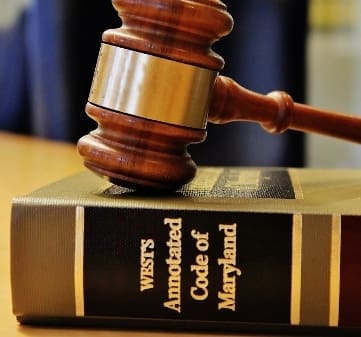
The Maryland Economic Loss Rule
Breach of contract is one of the most common causes of action used by parties to sue in the court system. However, often in a contract lawsuit, the plaintiff decides to also sue the defendant for a tort (such as negligence, fraud, or conversion). Such a tort lawsuit can potentially exist when a party is in contractual privity with the defendant. However, sometimes a tort or negligence lawsuit is filed against a defendant for negligence or other tort related to a business relationship once removed from an actual contractual relationship (such the manufacturer of a product or construction architects). Unfortunately for these non-privity plaintiffs, Maryland restricts a party from recovering certain tort damages when privity between the parties does not exist. Under Maryland’s “Economic Loss Rule,” a potentially aggrieved party cannot recover against another party for a tort claim (such as negligence, fraud, or conversion) where (1) the resulting harm is purely economic loss and (2) the parties have no contract between them.
The Maryland duty of these non-privity potential defendants (such as architects, builders, and manufactures) to use due care in their design, inspection, and construction extends only to those potential individuals foreseeably subjected to the risk of personal injury because of a dangerous conditions resulting from the non-privity potential defendant’s negligence. The general rule in Maryland remains that “Tort law is not designed . . . to compensate parties for losses suffered as a result of a breach of duties assumed only by agreement” and not in privity with the plaintiff. Council of Co-Owners Atlantis Condominium, Inc. v. Whiting-Turner Contracting Co. and Sensenbrenner v. Rust, Orling & Neale, Architects, Inc. Maryland’s Economic Loss Rule means that if someone is not in contractual privity (or other privity through nexus) with the party who they alleged caused their damage, the damaged party cannot sue the non-privity party for a tort (such as negligence) absent unusual circumstances. Thus, if your business-tort related litigation opponent was never in privity with you (and did not cause a dangerous condition), then your opponent is likely barred from also suing you for any tort damages.
Maryland appellate courts have consistently upheld this economic loss rule. Courts – including the Supreme Court in East River Steamship Corp. v. Transamerica Delaval, Inc. – have noted that if this economic loss rule is not preserved by the court system, then every construction contract or warranty would constitute actionable negligence and “contract law would drown in a sea of tort.”
In clarifying and reaffirming the economic loss rule in Maryland, the Maryland Court of Appeals in Whiting-Turner Contracting Co. held:
It is generally said that a contractor’s liability for economic loss is fixed by the terms of his contract. Tort liability is in general limited to situations where the conduct of the builder causes an accident out of which physical harm occurs to some person or tangible thing other than the building itself that is under construction.
Thus, “when there is no accident and no physical damage and the only loss is a pecuniary one, through loss of the value or use of the thing sold, or the cost of repairing it, the Courts have adhered to the rule . . . that purely economic interests are not entitled to protection against mere negligence, and so have denied recovery.”
 The one exception to the economic loss rule in Maryland occurred in the aforementioned Whiting Turner case. In Whiting-Turner, a condominium plaintiff sued the general contractor, developer and architects of the condominium for negligent construction of the utility shafts and related electrical work within the condominium. The utility shafts allegedly violated applicable building codes and allegedly posed a fire hazard because, inter alia, they were constructed with less than the code-required fire resistance. The Maryland Court of Appeals reiterated the established principle that there is, in general, no tort duty to prevent purely economic losses unaccompanied by privity or physical harm to person/property other than the thing sold. The Court then defined and adopted a limited exception to this principle as follows:
The one exception to the economic loss rule in Maryland occurred in the aforementioned Whiting Turner case. In Whiting-Turner, a condominium plaintiff sued the general contractor, developer and architects of the condominium for negligent construction of the utility shafts and related electrical work within the condominium. The utility shafts allegedly violated applicable building codes and allegedly posed a fire hazard because, inter alia, they were constructed with less than the code-required fire resistance. The Maryland Court of Appeals reiterated the established principle that there is, in general, no tort duty to prevent purely economic losses unaccompanied by privity or physical harm to person/property other than the thing sold. The Court then defined and adopted a limited exception to this principle as follows:
We conclude that the determination of whether a duty will be imposed in this type of case should depend upon the risk generated by the negligent conduct rather than on the fortuitous circumstance of the nature of the resulting damage. Where the risk is of death or personal injury the action will lie for the recovery of the reasonable cost of correcting the dangerous condition.
In meeting this standard, the Court cautioned:
It is the serious nature of the risk that persuades us to recognize the cause of action in the absence of actual injury. Accordingly, conditions that present risk to general health, welfare, or comfort but fall short of presenting a clear danger of death or personal injury will not suffice.
Thus, as long as there exists no clear danger of death or personal injury resulting from the actions which created the potential damage to a non-privity party, that party cannot sue for tort damages.
Longman & Van Grack’s civil litigation and contract dispute attorneys regularly represent clients in many different business-related and contract-related legal disputes in Maryland and Washington, DC. Adam Van Grack has assisted many clients through countless complex contract-based legal problems. If you would like to contact one of our attorneys, you can reach us at (301) 291-5027 and meet at our Bethesda, MD or Rockville, MD office (blocks away from the Montgomery County Circuit Court and District Court).

